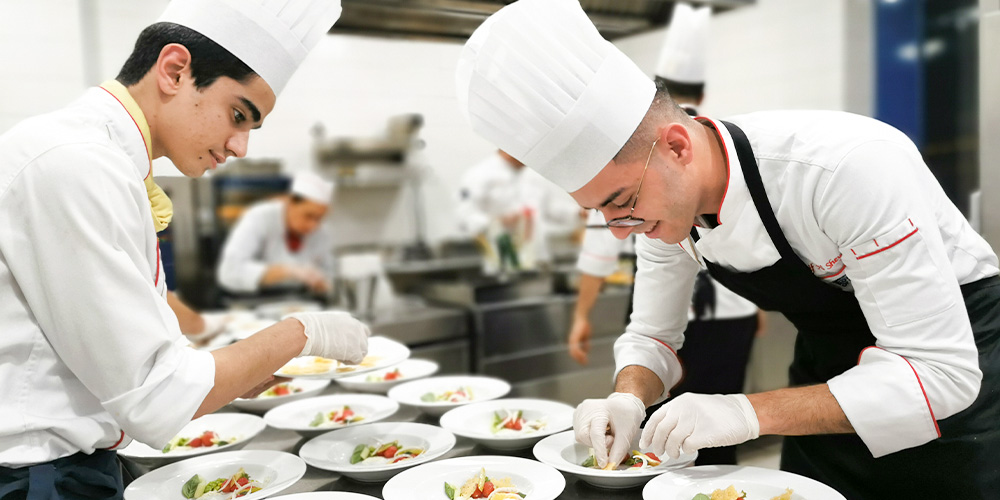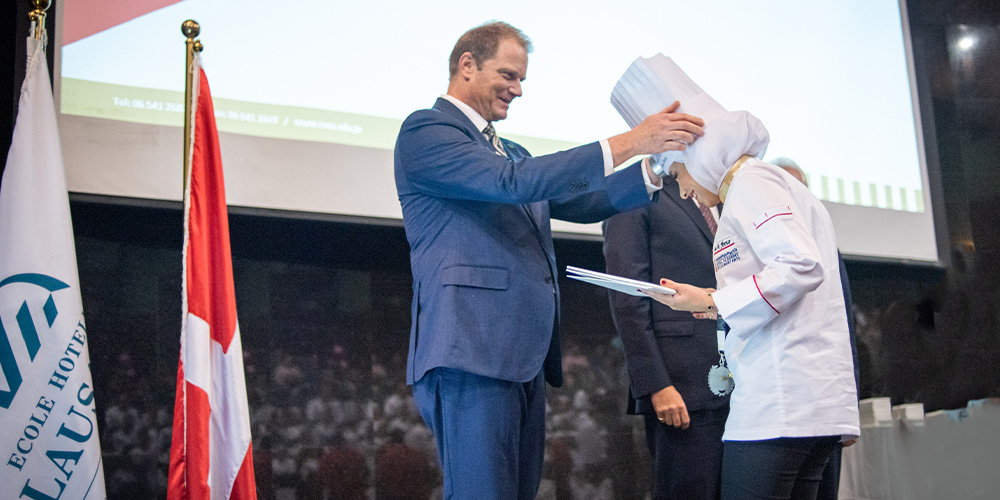English
Whom Culinary College Right For?

In many countries around the world, youth face difficulties to receive a formal education that helps them to acquire the fundamentals of a vocation that will eventually support them throughout their working life.
Over the years, some countries like Switzerland, Germany, or even the US have implemented a system of apprenticeship developed and led by professionals of the industry and regulated by the related Government bodies. However, not all countries have been able to create such a system, and little has been offered to youth to learn or perfect their skills on a professional level. As an alternative, technical colleges offering various streams of study to their students have been successfully established, and that includes culinary colleges.
For many years, working in a professional kitchen has been seen as a challenge, and even sometimes culturally shamed. Although the satisfaction of creating an emotional experience out of a raw ingredient has always been one of the prime motivators of any chef, a chef was never really regarded as an artist. With the raise of the social media platforms, and the interest they trigger in the younger generation, more people from far and wide are being attracted in discovering the culinary world, by moving away from a simple pastime, pleasuring the tastebuds of the family members and friends, to a more structured demanding occupation, requiring skills, knowledge, and experience.

Very often, the general public misunderstands the purpose and the mission of a culinary college, and views it as a cooking school. A culinary college offers various levels of knowledge fulfilling the needs of a young (or even younger!) person wishing to explore the fascinating world of tastes, colors and texture combinations, chemical and physical transformation of an ingredient through the cooking process as well as to gain the knowhow of kitchen management and entrepreneurship. A culinary college not only teaches a student how to apply a particular cooking technique to a produce, or how to follow a recipe, but also explains the “why” behind each required step while preparing a dish or a meal.
A culinary college offers to those passionate about culinary and cooking a key to open the doors that will eventually allow them to build a career in the mesmerizing world of gastronomy and hospitality. It is a blueprint that determines the various career possibilities offered to a young professional chef after a few years of study. Due to the fact that a culinary college is more than a cooking school, graduates foster a mindset that gives them the tools to start a career not only as a chef, but many other possibilities such as food critic, nutritionist, F&B specialist, event planner, etc.

Working in the hospitality industry is a commitment that requires passion, dedication, and a guests-oriented mentality. It is an occupation that is known for its challenges and antisocial working hours; however, it is also full of satisfaction. Many people believe that they have what it takes to have a career as a chef, but not all are successful. A culinary college will guide an aspiring chef to make the right career choices and ensure their path in the hospitality industry is correctly paved to lead them to triumph. The college will offer an academic structure, doubled with hand-on sessions where the students have the opportunity to practically apply what has been learnt in the theoretical setting.
Usually, a culinary college also offers a mandatory internship semester that provides students with work experience at nationally or internationally recognized establishments. Students are able to apply the achieved skill levels, and further deepen and develop new competencies and managerial skills by experiencing an existing operation. This experience prepares students to better comprehend proficiencies needed in the industry. The college closely supervises the desired learning outcomes through projects, work journals and onsite visits, conducting regular interviews with both the internship provider and the student.
Enrolling in a culinary college may help those who want to embrace an ever-evolving industry that requires creativity out of the ordinary; who have a passion for food and wish to please people through the art of cooking; who wish to meet people and enhance guest’s contact; and for those who like to travel and be provided with the opportunity to discover the world as well as to achieve their dream. Studies demonstrate that one job out of ten is related to the hospitality industry, and despite the negative impact the COVID-19 had on the travel industry in 2020 and still affecting 2021, positive signs show that people are willing to explore new horizons once the normal life is back, and the hospitality sector will recover rapidly.



